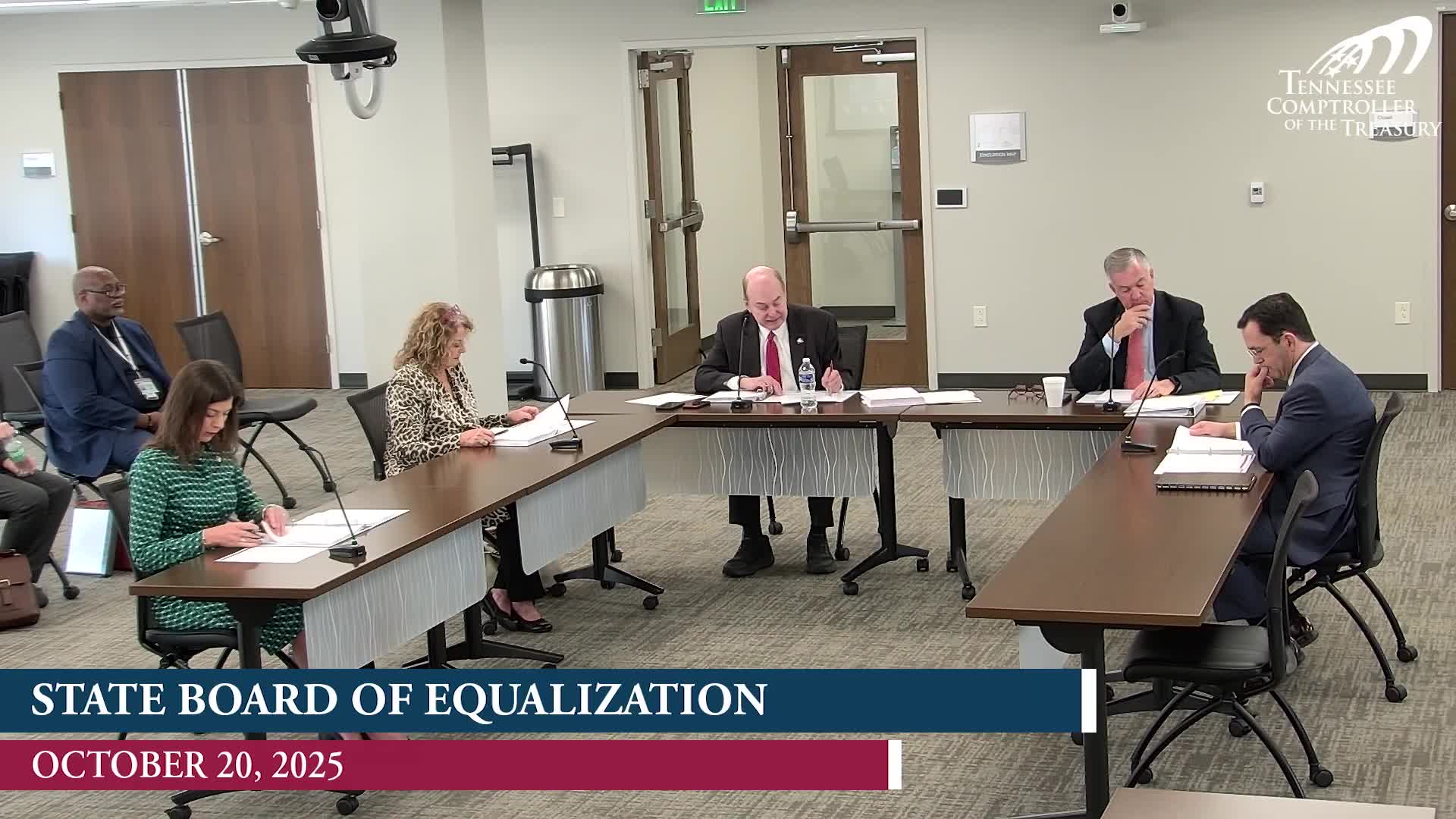Board of Equalization adopts technical edits to contested case procedures after public comment
Get AI-powered insights, summaries, and transcripts
Subscribe
Summary
The State Board of Equalization on Oct. 20 adopted technical amendments to contested case procedures to clarify filing protocols, remove obsolete references and refine appeal processes.
NASHVILLE, Tenn. — The Tennessee State Board of Equalization on Oct. 20 approved amendments to its contested case procedures, adopting primarily technical edits intended to clarify filing protocols, defined terms and where documents must be submitted.
Mr. Pope told the board the proposed amendments arose from a rule-making hearing and public comment; the changes remove references to the now–sunset Assessment Appeals Commission and clarify submission procedures and protocols for initiating appeals. “These rules govern the contested case procedures applying specifically to appeals with the State Board of Equalization, involving the classification, valuation, exemption, and related matters,” Mr. Pope said.
The board approved the amendments by roll call after a motion from Miss Betty Burchett and a second from Erin Merrick.
A public commenter, Will DeNaomi, who said he represented assessors of property, told the board he supported the proposed rules and thanked staff for incorporating changes. “We think the rules are very good and much needed,” DeNaomi said. He also raised a potential future enhancement: automating the process that determines which county or official should appear when an assessor is dismissed from a case or when agency determinations are at issue.
Mr. Pope and board members said the amendments do not change substantive rights but aim to improve clarity, capitalization of defined terms, and protocols for agent representation and filing location. The board recorded no dissent on the motion and approved the amendments.
The board noted the rules will guide how exemption and tax-relief appeals, classification and valuation appeals, and related contested cases proceed before the state board.
